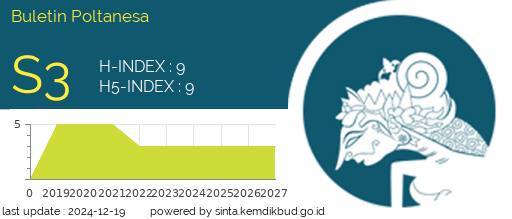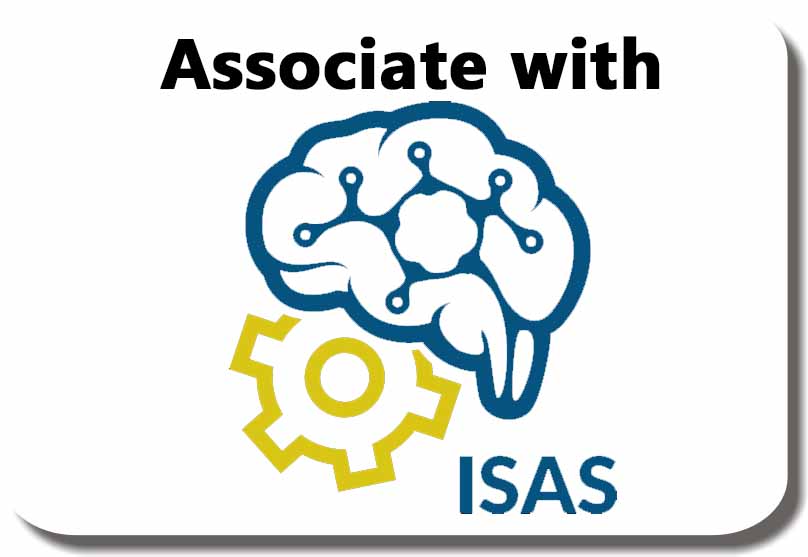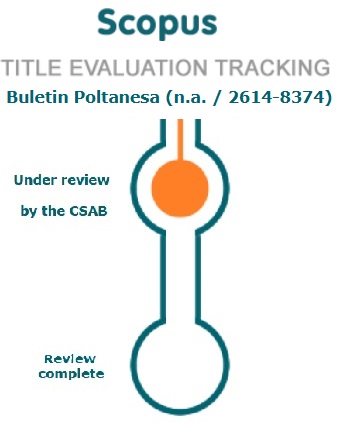The Effect of Time Pressure and Workload on Auditor Performance with Professional Ethics as a Moderating Variable at the West Kalimantan Audit Board
DOI:
https://doi.org/10.51967/tanesa.v26i1.3357Keywords:
Time Pressure, Workload, Auditor Performance, Professional Ethics, Moderating Effect, Audit Quality, Auditor Resilience.Abstract
This study aims to analyze the influence of time pressure and workload on auditor performance as well as the role of professional ethics as a moderating variable in these relationships. Data were collected through questionnaires distributed to auditors at the Financial Supervisory Agency (BPK) of West Kalimantan Province. The analysis method used is Structural Equation Modeling Partial Least Squares (SEM-PLS) with SmartPLS4 software to examine the relationships among variables. The results indicate that time pressure and workload have a significant negative effect on auditor performance. Furthermore, professional ethics was found to moderate the relationship between time pressure and workload with auditor performance, where auditors with a high level of professional ethics are able to maintain performance quality despite facing high pressure and workload. These findings emphasize the importance of strengthening professional ethics values as a protective factor to enhance auditors’ resilience against work-related stress. The practical implications of this study include the need for effective workload management and realistic scheduling, as well as the continuous development of professional ethics training to maintain audit quality and auditor well-being.
References
Arens, A. A., Elder, R. J., & Beasley, M. S. (2016). Auditing and assurance services: An integrated approach (16th ed.). Pearson.
Arens, A. A., Elder, R. J., & Beasley, M. S. (2017). Auditing and assurance services: An integrated approach. Pearson.
Ariani, R., & Suzan, L. (2018). Pengaruh tekanan waktu dan kompleksitas tugas terhadap perilaku disfungsional auditor. Jurnal Ilmiah Akuntansi dan Keuangan, 10(2), 101–112.
Badan Pemeriksa Keuangan Republik Indonesia (BPK RI). (2020). Laporan Tahunan BPK.
Bonaventura Hendrawan Maranata & Dian Prasetyo Widyaningtyas. (2024). Analisis pengaruh beban kerja dan stres kerja terhadap kinerja karyawan (Studi kasus pada karyawan bidang otomotif). BBM (Buletin Bisnis & Manajemen), 10(2), 173–181.
Carayon, P., Smith, M. J., & Haims, M. C. (2020). Workload and human error: A conceptual framework. Ergonomics, 63(2), 121–132. https://doi.org/10.1080/00140139.2019.1661221
Carpenter, T. D., & Strawser, J. R. (2007). The impact of time budget pressure on auditor judgment. Auditing: A Journal of Practice & Theory, 26(1), 1–16.
Devia, E., Ratnasari, I., & Azizah, S. N. (2022). Pengaruh tekanan waktu, kompetensi, independensi, dan etika auditor terhadap kualitas audit (Studi pada Kantor Akuntan Publik di Kota Semarang). Jurnal Ilmiah Profit: Kajian Ilmu Ekonomi, 9(1), 76–85.
Duska, R., Duska, B. S., & Ragatz, J. A. (2011). Accounting ethics (3rd ed.). Wiley.
Febriyanti, R. (2018a). Pengaruh beban kerja terhadap kualitas audit pada auditor di kantor akuntan publik. Jurnal Akuntansi dan Keuangan, 10(1), 45–54.
Febriyanti, R. (2018b). Pengaruh tekanan waktu terhadap kinerja auditor. Jurnal Akuntansi Indonesia, 7(1), 45–54.
Hanifah. (2023). Pengaruh tekanan waktu, tekanan klien, dan pengalaman audit terhadap perilaku disfungsional auditor (Studi pada auditor BPKP Provinsi DKI Jakarta. Universitas Islam Negeri Syarif Hidayatullah Jakarta.
Hayes, R., Dassen, R., Schilder, A., & Wallage, P. (2014). Principles of auditing: An introduction to international standards on auditing (3rd ed.). Pearson.
Jones, D., & Walker, K. (2019). The impact of excessive workload on auditor performance: A psychological perspective. Journal of Business Ethics, 158(1), 215–230. https://doi.org/10.1007/s10551-017-3708-7
Khan, S., & Ramachandran, S. (2018). Effects of workload on the performance of internal auditors. International Journal of Auditing, 22(3), 356–370. https://doi.org/10.1111/ijau.12154
Kusumawati, N. (2019). Pengaruh etika profesi terhadap kinerja auditor. Jurnal Ilmiah Akuntansi dan Bisnis, 14(2), 123–135.
Lee, J., & Lee, S. (2020). The optimal level of time pressure for auditor performance: Evidence from experimental research. Accounting Horizons, 34(1), 29–45. https://doi.org/10.2308/acch-52692
Lestari, D., & Darmawan, D. (2022). Etika profesi dan kompetensi dalam menjaga independensi auditor. Jurnal Profita, 10(1), 33–44.
Lim, C., & Teo, L. (2017). Workload and motivation: Effects on audit quality. Managerial Auditing Journal, 32(5), 506–521. https://doi.org/10.1108/MAJ-12-2016-1447
Martin, R., & O’Neill, P. (2021). Organizational pressures and ethical decision-making in auditing. Journal of Accounting Research, 59(4), 893–923. https://doi.org/10.1111/1475-679X.12358
Murtanto, M., & Suryaningsih, N. (2021). Beban kerja dan burnout auditor di Kantor Akuntan Publik. Jurnal Manajemen dan Kewirausahaan, 23(1), 77–85.
Nguyen, T., & Tran, H. (2019). The influence of work environment on auditor performance: A Vietnamese perspective. Asian Journal of Business Ethics, 8(2), 241–256. https://doi.org/10.1007/s13520-019-00100-5
Parker, L. D., & Williams, D. (2001). Professionalism and ethical behavior in auditing. Accounting, Auditing & Accountability Journal, 14(4), 521–542.
Sari, A. M., & Endang, M. (2020). Pengaruh tekanan waktu terhadap kualitas audit dengan locus of control sebagai variabel moderasi. Jurnal Akuntansi dan Keuangan, 11(2), 87–95.
Sembiring, M. B., & Budianto, A. (2021). Peran etika profesi sebagai pemoderasi pengaruh tekanan kerja terhadap kualitas audit. Jurnal Akuntansi Multiparadigma, 12(1), 88–100.
Simamora, M., & Rahmi, A. (2022a). Dampak beban kerja terhadap kinerja auditor dengan mediasi burnout. Jurnal Akuntansi dan Bisnis, 9(1), 12–26.
Simamora, M., & Rahmi, A. (2022b). Dampak beban kerja terhadap kinerja auditor dengan mediasi stres kerja. Jurnal Akuntansi Indonesia, 9(1), 12–26.
Smith, P., & Emerson, J. (2017). Time pressure and audit quality: An experimental study. Auditing: A Journal of Practice & Theory, 36(3), 125–143. https://doi.org/10.2308/ajpt-51679
Silva, F., Martins, R., & Costa, M. (2018). The role of technology in auditor workload and performance. International Journal of Accounting Information Systems, 30, 45–58. https://doi.org/10.1016/j.accinf.2018.02.002
Sweeney, B., & Summers, S. L. (2002). The effect of time budget pressure and audit program structure on auditor performance. Auditing: A Journal of Practice & Theory, 21(2), 167–176.
Susanti, I., & Yuliana, R. (2019). Pengaruh stres kerja dan motivasi terhadap kinerja auditor. Jurnal Akuntansi dan Keuangan, 14(1), 45–56.
Utami, R., & Nurmantu, D. (2020). Kompetensi, independensi, dan etika terhadap kinerja auditor. Jurnal Ilmiah Akuntansi dan Bisnis, 5(2), 102–114.
Yunis, R., Rahmawati, F., & Mardiyah, S. (2018). Beban kerja dan stres kerja terhadap kinerja auditor. Jurnal Ekonomi dan Bisnis, 15(2), 98–105.
Yustisia, A. R., & Priyadi, M. P. (2021). Pengaruh beban kerja terhadap kinerja auditor dengan mediasi stres kerja. Jurnal Ilmu dan Riset Akuntansi, 10(1), 112–121.
Downloads
Published
How to Cite
Issue
Section
License
Copyright (c) 2025 Buletin Poltanesa

This work is licensed under a Creative Commons Attribution-ShareAlike 4.0 International License.
The copyright of this article is transferred to Buletin Poltanesa and Politeknik Pertanian Negeri Samarinda, when the article is accepted for publication. the authors transfer all and all rights into and to paper including but not limited to all copyrights in the Buletin Poltanesa. The author represents and warrants that the original is the original and that he/she is the author of this paper unless the material is clearly identified as the original source, with notification of the permission of the copyright owner if necessary.
A Copyright permission is obtained for material published elsewhere and who require permission for this reproduction. Furthermore, I / We hereby transfer the unlimited publication rights of the above paper to Poltanesa. Copyright transfer includes exclusive rights to reproduce and distribute articles, including reprints, translations, photographic reproductions, microforms, electronic forms (offline, online), or other similar reproductions.
The author's mark is appropriate for and accepts responsibility for releasing this material on behalf of any and all coauthor. This Agreement shall be signed by at least one author who has obtained the consent of the co-author (s) if applicable. After the submission of this agreement is signed by the author concerned, the amendment of the author or in the order of the author listed shall not be accepted.








